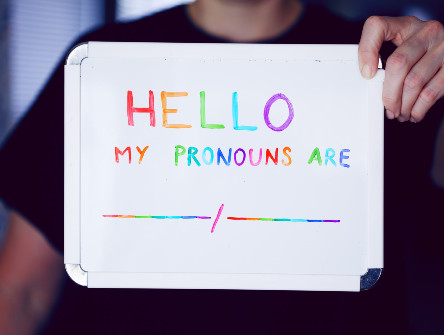Why revoking the papal bulls is necessary
It's an important step in ridding ourselves of the Doctrine of Discovery.

When I was a kid in rural Manitoba attending the local Catholic church or reciting the Rosary with my Granny, I never imagined that one day the CBC would interview me about my views on the Pope.
I received the unexpected phone call from the CBC at the end of March in response to First Nation delegates urging the Pope to revoke 15th-century papal bulls, which sanctioned European claims to Indigenous land. I explained to the CBC, that while revoking the papal bulls is unlikely to have a legal effect in Canada, it is important because it would pressure our governments and courts to seriously consider the place of the Doctrine of Discovery in Canadian law.
The Doctrine of Discovery is the Western legal principle that European countries extinguished Indigenous sovereignty and acquired the underlying title to Indigenous peoples’ lands upon “discovering” them. The principle derives from an 1820s decision of the Supreme Court of the United States. An early champion of the principle was U.S. President Andrew Jackson, infamous for signing into law the Indian Removal Act of 1830.
The Doctrine of Discovery entered Canadian law in the 1880s through the St. Catharine’s Milling decision, the first major court decision to address the nature of Indigenous land rights in Canada. When the Supreme Court of Canada began its modern consideration of Indigenous rights in the late 20th century, it relied on the doctrine to explain how colonizing European countries gained the underlying title to Indigenous lands.
Despite the appeals of intervenors in the 2014 Tsilhqot’innation decision, the Supreme Court refused to abandon the Doctrine of Discovery. Instead, the court perpetuated and reinforced the racist, dehumanizing and indefensible principle that with a sleight of hand, the British Crown acquired the underlying title to Indigenous lands through a simple assertion of sovereignty. The Truth and Reconciliation Commission denounced the Doctrine of Discovery. Four of the commission’s calls to action (45, 46, 47 and 49) urge governments and religious denominations to publicly disavow it—Canadian governments have responded with silence.
The doctrine is not simply a historical or legal curiosity—it informs every aspect of federal and provincial governments’ relationships with Indigenous Peoples.
The Supreme Court of Canada has repeatedly stated that at its heart reconciliation is about reconciling the pre-existing rights of Indigenous Peoples with the assertion of Crown sovereignty. The phrase “assertion of Crown sovereignty” is a Canadian euphemism for the Doctrine of Discovery. Every time Canadians read about “reconciliation” in the news, they enter a national conversation based on the racist and dehumanizing Doctrine of Discovery.
When Canadian governments consider making a decision with the potential to affect Indigenous rights protected under section 35 of the Constitution Act, they must consult and accommodate Indigenous peoples. The duty to consult is based on Canadian governments’ claim to the underlying title to Indigenous lands. Every time governments across the country engage in consultation with First Nations, they invoke the Doctrine of Discovery.
Even when Indigenous peoples succeed in establishing Aboriginal title to their lands, they cannot escape the Doctrine of Discovery. In Canadian law, Indigenous rights protected under section 35 of the Constitution, including Aboriginal title, are not absolute. Where justified, provincial and federal governments can infringe Aboriginal title in the name of reconciliation.
The Supreme Court has suggested that Aboriginal title might be infringed for a wide range of purposes, including the development of agriculture, forestry, mining and hydroelectric power, as well as the building of infrastructure and the settlement of foreign populations. The Doctrine of Discovery is the back door through which Canadian governments can override Aboriginal title.
The long, insidious reach of the Doctrine of Discovery extends beyond the courts and government interactions with Indigenous people. Canadian private property rights are based on the Doctrine of Discovery. Every time Canadians sell a house and rub their hands with glee at the wealth their property has generated, they are complicit in perpetuating the Doctrine of Discovery.
It is clear that Canadians cannot expect Canadian courts to rectify this injustice. Rather than denounce the Doctrine of Discovery, the Supreme Court of Canada has relied on it to build the framework for its interpretation of Indigenous rights protected under the constitution. It has done so because acknowledging the legal and moral illegitimacy of the Doctrine of Discovery would raise questions about the court’s authority over Indigenous people and Indigenous lands.
Reconciliation has become a four-letter word for many Indigenous people not simply because of a continuous stream of empty and broken promises. Reconciliation fails Indigenous people, and all of Canada, because it rests on a legal house of cards—the morally reprehensible Doctrine of Discovery. By finally and officially rejecting the doctrine, Canada will be able to enter a relationship of respect and coexistence with Indigenous peoples—respecting their inherent rights and the right to protect their land and their children.
This essay is adapted from Bruce McIvor’s Standoff: Why Reconciliation Fails Indigenous People and How to Fix It (Nightwood Editions, 2021).


